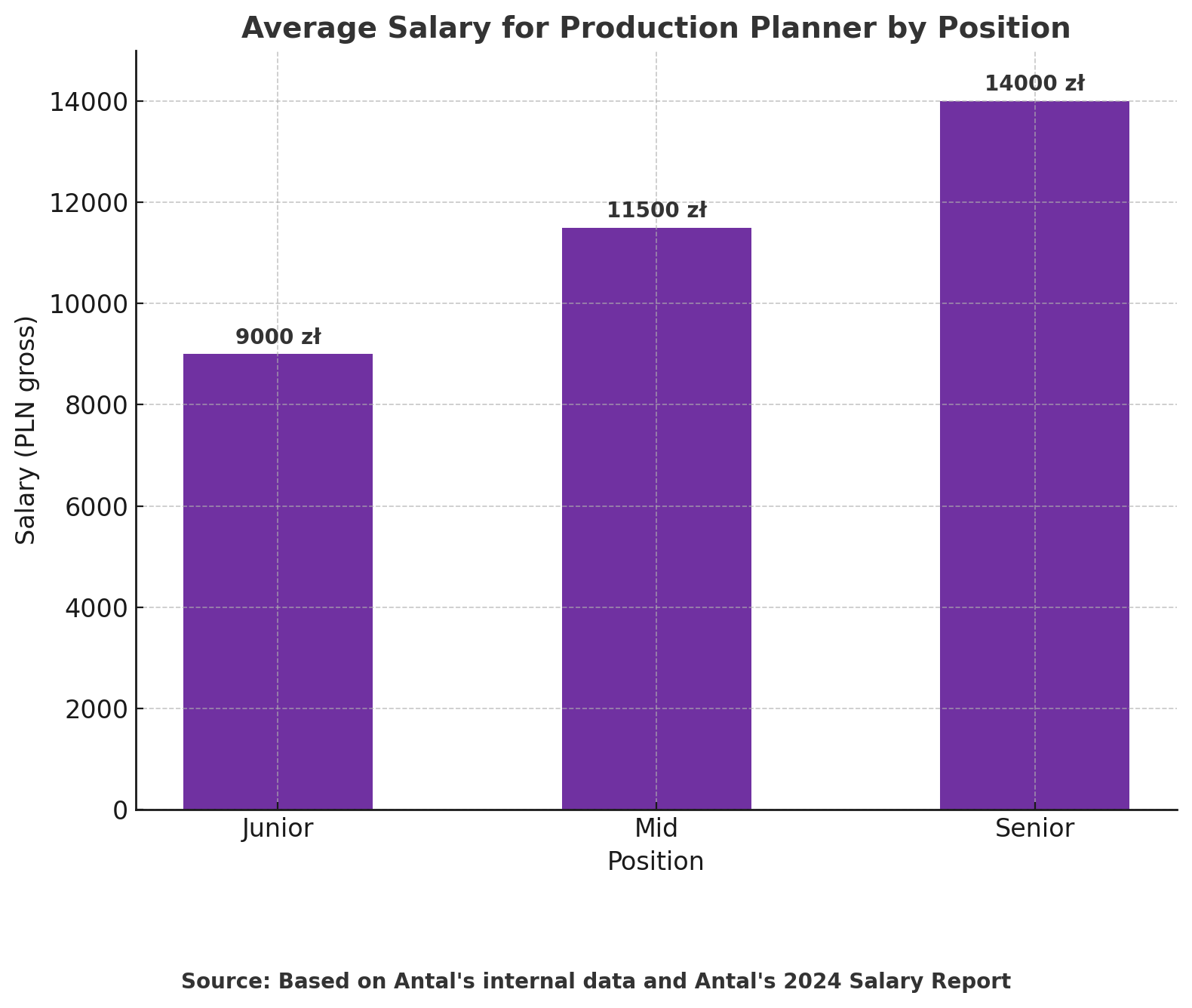Production Planner - Salary, Job, Responsibilities, and Requirements
Table of contents
The role of a Production Planner is essential in any production-oriented company aiming for efficient process organization and maximizing productivity. This article explores the specifics of a Production Planner's role, the requirements for the position, valued qualifications, and potential earnings.
What Does a Production Planner Do?
A Production Planner is responsible for coordinating and scheduling production processes to efficiently utilize resources, minimize costs, and ensure timely order completion. This job involves analyzing production needs, inventory control, and collaboration with logistics, procurement, and quality departments. The primary goal is to optimize production, from material planning to tracking process progress. Working in a dynamic environment, planners often use advanced ERP (Enterprise Resource Planning) systems for process management.
Key responsibilities include:
- Creating and overseeing production schedules,
- Monitoring raw materials and inventory,
- Working with production teams to resolve issues,
- Analyzing process efficiency and implementing improvements,
- Forecasting material needs,
- Ensuring quality standards.
This position requires analytical skills, time management, and effective communication with other departments.
Requirements for a production planner - courses and qualifications
Requirements can vary by industry, but employers usually seek candidates with backgrounds in production management, logistics, engineering, or economics. Important skills include data analysis and familiarity with ERP or MRP (Manufacturing Resource Planning) tools.
Valued courses and qualifications:
- Certifications in production management (e.g., APICS CPIM - Certified in Production and Inventory Management),
- Training in process management and production optimization,
- Knowledge of Lean Manufacturing and Six Sigma,
- Proficiency with analytical tools like Excel, Power BI, and ERP systems,
- Data management and reporting skills.
Additionally, experience in a production environment is a strong asset, and English proficiency is often required in international companies.
Production planner salary - reality and prospects
The earnings of a production planner can vary significantly depending on the industry, location and level of experience. The average salary for this position in Poland, according to the Antal 2024 Salary Report, ranges from approximately PLN 9,000 to PLN 14,000 gross per month. In a junior position, one can expect an average salary close to the lower limit of PLN 9 000 gross per month, at mid PLN 11 500, as a senior PLN 14 000.
Below is a chart showing the average earnings of a production planner by position:

Besides base pay, production planners often receive bonuses based on production results and KPIs. Some companies also offer additional benefits like private health care, life insurance, or training programs.
Long-term, the role offers growth potential into production management, logistics, or supply chain management. For those interested in career progression, the Production Planner position is a solid foundation.
In summary, a Production Planner position requires specialized knowledge but offers stable pay and career prospects. As production planning becomes more complex, advanced skills in ERP tools and process optimization open up further opportunities and attractive remuneration.














